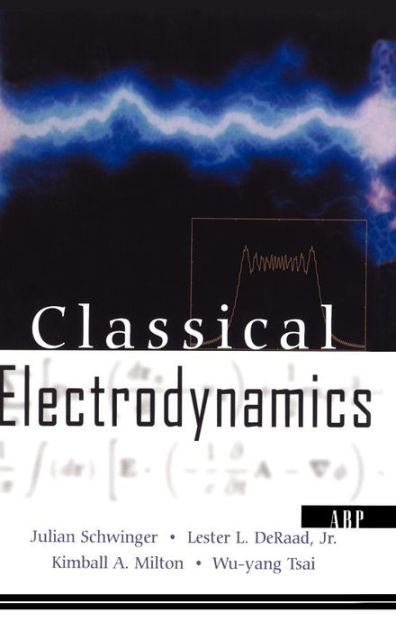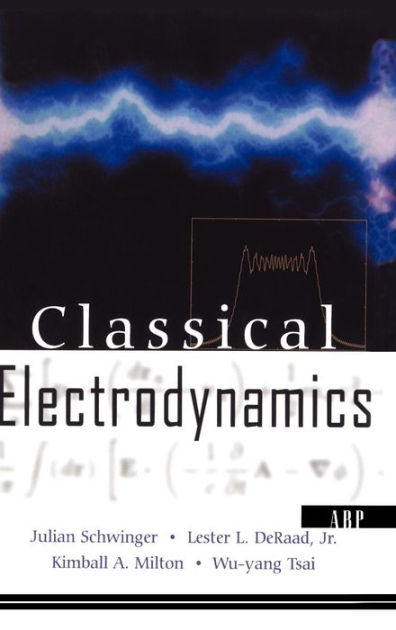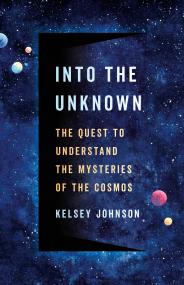Promotion
Use code BESTBOOKS24 for 25% off sitewide + free shipping over $35
By clicking “Accept,” you agree to the use of cookies and similar technologies on your device as set forth in our Cookie Policy and our Privacy Policy. Please note that certain cookies are essential for this website to function properly and do not require user consent to be deployed.
Classical Electrodynamics
Contributors
By Lester L. Deraad
By Kimball Milton
By Wu-yang Tsai
By Joyce Norton
Formats and Prices
Price
$88.00Format
Format:
- Hardcover $88.00
- ebook $57.99
This item is a preorder. Your payment method will be charged immediately, and the product is expected to ship on or around September 11, 1998. This date is subject to change due to shipping delays beyond our control.
Also available from:
Classical Electrodynamics captures Schwinger's inimitable lecturing style, in which everything flows inexorably from what has gone before. Novel elements of the approach include the immediate inference of Maxwell's equations from Coulomb's law and (Galilean) relativity, the use of action and stationary principles, the central role of Green's functions both in statics and dynamics, and, throughout, the integration of mathematics and physics. Thus, physical problems in electrostatics are used to develop the properties of Bessel functions and spherical harmonics. The latter portion of the book is devoted to radiation, with rather complete treatments of synchrotron radiation and diffraction, and the formulation of the mode decomposition for waveguides and scattering. Consequently, the book provides the student with a thorough grounding in electrodynamics in particular, and in classical field theory in general, subjects with enormous practical applications, and which are essential prerequisites for the study of quantum field theory.An essential resource for both physicists and their students, the book includes a ”Reader's Guide,” which describes the major themes in each chapter, suggests a possible path through the book, and identifies topics for inclusion in, and exclusion from, a given course, depending on the instructor's preference. Carefully constructed problems complement the material of the text, and introduce new topics. The book should be of great value to all physicists, from first-year graduate students to senior researchers, and to all those interested in electrodynamics, field theory, and mathematical physics.The text for the graduate classical electrodynamics course was left unfinished upon Julian Schwinger's death in 1994, but was completed by his coauthors, who have brilliantly recreated the excitement of Schwinger's novel approach.
Genre:
- On Sale
- Sep 11, 1998
- Page Count
- 592 pages
- Publisher
- Avalon Publishing
- ISBN-13
- 9780738200569
Newsletter Signup
By clicking ‘Sign Up,’ I acknowledge that I have read and agree to Hachette Book Group’s Privacy Policy and Terms of Use







